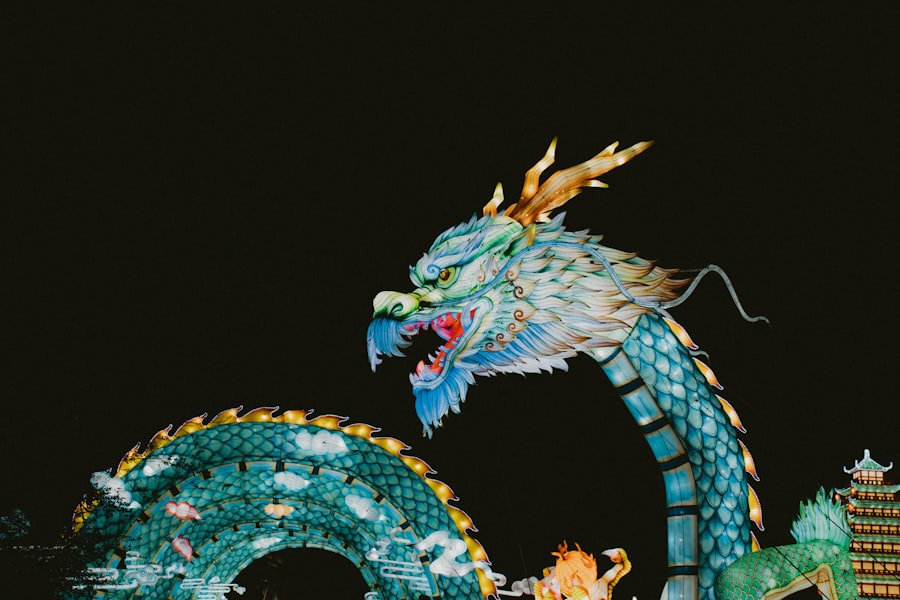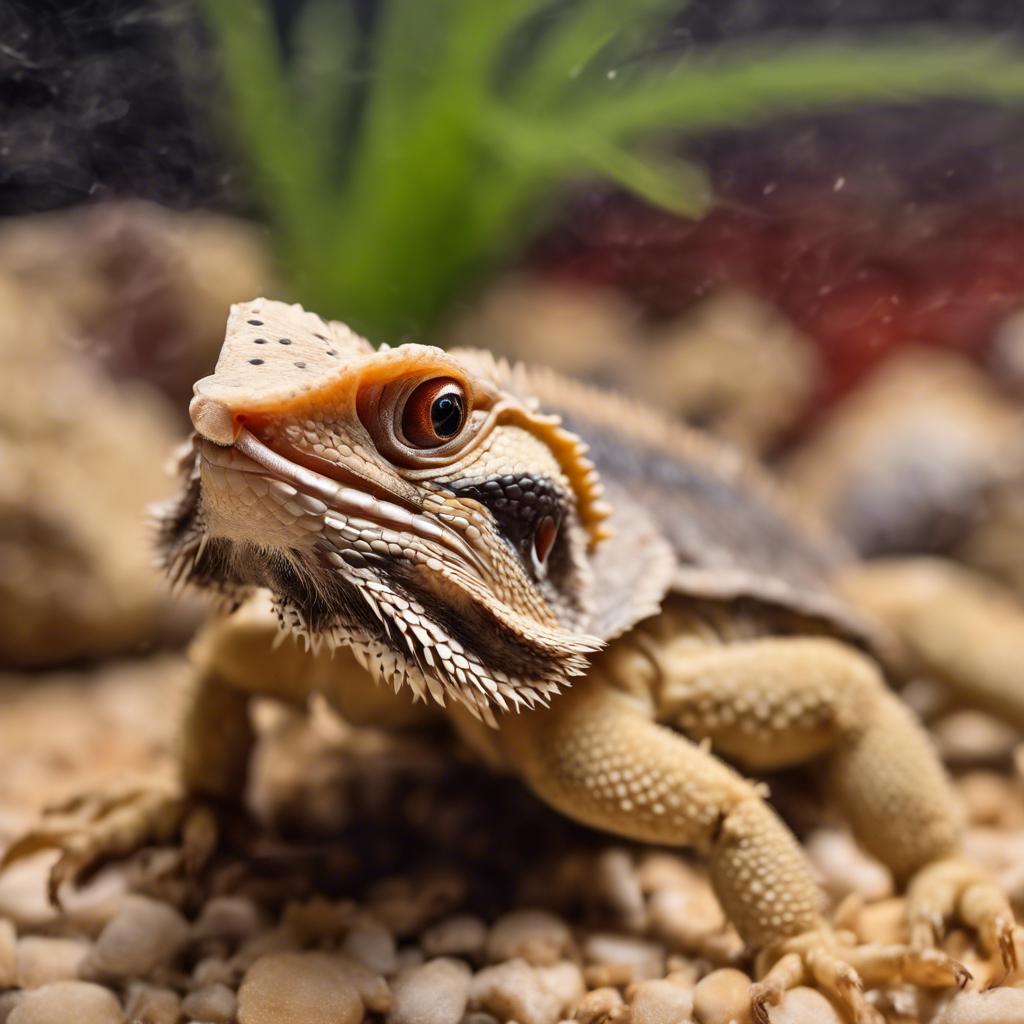Bearded dragons are popular reptile pets known for their unique appearance and docile nature. As responsible pet owners, it is crucial to provide them with a balanced and nutritious diet to ensure their overall health and well-being. One food source that has gained popularity among bearded dragon owners is Dubia roaches. In this article, we will explore the benefits and considerations of using Dubia roaches as a food source for bearded dragons.
Key Takeaways
- Dubia roaches are a popular food source for bearded dragons.
- Dubia roaches are highly nutritious and provide a balanced diet for bearded dragons.
- The number of dubia roaches to feed your bearded dragon depends on its age and size.
- Leaving dubia roaches in your bearded dragon tank has pros and cons, and can pose risks to your pet's health.
- It is important to monitor your bearded dragon's health and follow best practices when using dubia roaches as food.
Dubia Roaches as a Bearded Dragon Food Source
Dubia roaches, also known as Blaptica dubia, are a species of roach native to Central and South America. They have become increasingly popular as a food source for bearded dragons due to their nutritional value and availability. Unlike other feeder insects such as crickets or mealworms, Dubia roaches are low in fat and high in protein, making them an excellent choice for bearded dragons.
One of the main advantages of using Dubia roaches as a food source is their availability. They can be easily purchased from pet stores or online suppliers, ensuring a consistent supply for your pet. Additionally, Dubia roaches are relatively affordable compared to other feeder insects, making them a cost-effective option for bearded dragon owners.
The Nutritional Value of Dubia Roaches for Bearded Dragons
Feeding your bearded dragon a varied diet is essential to ensure they receive all the necessary nutrients for optimal health. Dubia roaches offer a range of nutritional benefits that can contribute to your pet's well-being. They are rich in protein, which is crucial for muscle development and growth in bearded dragons.
Furthermore, Dubia roaches have a low-fat content, making them an ideal choice for maintaining a healthy weight in your pet. Obesity is a common issue among captive reptiles, so providing a low-fat food source like Dubia roaches can help prevent weight-related health problems.
In addition to protein and low-fat content, Dubia roaches also contain essential vitamins and minerals. They are a good source of calcium, which is vital for bone health and preventing metabolic bone disease in bearded dragons. Dubia roaches also provide other essential nutrients such as vitamin A, vitamin B12, and iron, contributing to your pet's overall nutritional needs.
How Many Dubia Roaches Should You Feed Your Bearded Dragon?
The number of Dubia roaches you should feed your bearded dragon depends on their age and size. As a general guideline, juvenile bearded dragons should be fed smaller Dubia roaches more frequently, while adult bearded dragons can be fed larger roaches less frequently.
For juvenile bearded dragons, it is recommended to feed them as many Dubia roaches as they can consume in a 10-15 minute period, two to three times a day. This ensures they receive enough nutrients for their rapid growth and development.
Adult bearded dragons, on the other hand, can be fed larger Dubia roaches every other day or every few days. The number of roaches will depend on the size and appetite of your pet. It is important not to overfeed your bearded dragon as obesity can lead to various health issues.
Can You Leave Dubia Roaches in Your Bearded Dragon Tank?
One question that often arises among bearded dragon owners is whether it is safe to leave Dubia roaches in their pet's tank as a constant food source. This practice, known as “free-feeding,” involves placing a colony of Dubia roaches in the tank for the bearded dragon to eat at their leisure.
There are potential benefits to free-feeding Dubia roaches. It provides a constant source of food for your pet, ensuring they have access to nutrition whenever they need it. This can be particularly beneficial for bearded dragons that have a hearty appetite or are prone to weight loss.
The Pros and Cons of Leaving Dubia Roaches in Your Bearded Dragon Tank

While free-feeding Dubia roaches may seem convenient, there are both advantages and disadvantages to consider. One advantage is that it eliminates the need for daily feeding and monitoring of your pet's food intake. This can be especially helpful for busy pet owners or those who travel frequently.
Another advantage is that free-feeding Dubia roaches allows bearded dragons to exhibit natural foraging behavior. In the wild, bearded dragons would spend time hunting for food, so providing them with a constant source of prey can help stimulate their natural instincts.
However, there are also potential drawbacks to leaving Dubia roaches in your bearded dragon's tank. One concern is cleanliness. Dubia roaches produce waste, which can accumulate in the tank and lead to odor and hygiene issues. Regular cleaning and maintenance of the tank are necessary to prevent these problems.
Another consideration is the potential for escapees. Dubia roaches are excellent climbers and can escape from the tank if not properly secured. This can lead to infestations in your home or pose a risk to other pets if they consume the escaped roaches.
The Risks of Leaving Dubia Roaches in Your Bearded Dragon Tank
While free-feeding Dubia roaches may offer convenience, there are potential risks associated with this practice. One concern is the possibility of bites or injuries to your bearded dragon. Although Dubia roaches are not known to be aggressive towards humans or pets, there is still a small risk of bites, especially if your pet is particularly small or weak.
It is important to monitor your bearded dragon's health and behavior when free-feeding Dubia roaches. Look out for any signs of illness or stress, such as decreased appetite, lethargy, or changes in behavior. If you notice any concerning symptoms, it is best to consult a veterinarian for further evaluation and guidance.
How to Monitor Your Bearded Dragon's Health When Leaving Dubia Roaches in the Tank
When free-feeding Dubia roaches, it is crucial to monitor your bearded dragon's health closely. Regularly observe their behavior, appetite, and overall appearance to ensure they are thriving. Look for any signs of illness or stress, such as weight loss, abnormal feces, or changes in skin color.
Additionally, it is important to provide a balanced diet for your bearded dragon even when free-feeding Dubia roaches. While they offer many nutritional benefits, they should not be the sole food source for your pet. Bearded dragons require a variety of insects, vegetables, and fruits to meet their nutritional needs. Supplementing their diet with other feeder insects like crickets or mealworms, as well as offering a variety of greens and fruits, will help ensure a well-rounded diet.
Best Practices for Bearded Dragon Care When Using Dubia Roaches as Food
When using Dubia roaches as a food source for your bearded dragon, there are several best practices to keep in mind. First and foremost, always purchase Dubia roaches from reputable sources to ensure they are healthy and free from any potential diseases or parasites.
It is also important to provide a suitable habitat for the Dubia roaches if you plan on breeding them yourself. They require specific temperature and humidity conditions to thrive and reproduce successfully. Research proper care guidelines or consult with an experienced breeder to ensure you are providing the optimal conditions for your roach colony.
Lastly, remember that variety is key when it comes to your bearded dragon's diet. While Dubia roaches offer many nutritional benefits, it is essential to supplement their diet with other feeder insects such as crickets, mealworms, or phoenix worms. Additionally, offer a variety of vegetables and fruits to provide a well-rounded and balanced nutrition for your pet.
Should You Leave Dubia Roaches in Your Bearded Dragon Tank?
In conclusion, using Dubia roaches as a food source for your bearded dragon can offer many benefits in terms of nutrition and availability. However, the decision to leave Dubia roaches in your pet's tank as a constant food source should be made based on your individual situation and your pet's needs.
Consider the pros and cons discussed in this article, such as convenience, cleanliness, and potential risks. If you choose to free-feed Dubia roaches, ensure you monitor your bearded dragon's health closely and provide a balanced diet to meet their nutritional needs.
Ultimately, the well-being of your bearded dragon should be the top priority. Consult with a veterinarian or experienced reptile keeper for personalized advice and guidance on feeding practices for your specific pet. With proper care and attention, Dubia roaches can be a valuable addition to your bearded dragon's diet.
If you're wondering whether it's safe to leave Dubia roaches in your bearded dragon's tank, you'll find all the answers you need in this informative article from Reptile Wizard. They provide expert advice on reptile keeping and have a wealth of knowledge on bearded dragons. In this particular article, they discuss the potential risks and benefits of leaving Dubia roaches in your dragon's tank. To learn more about this topic, visit Reptile Wizard.
FAQs
What are Dubia Roaches?
Dubia Roaches are a species of cockroach that are commonly used as a food source for reptiles and other exotic pets.
Can Bearded Dragons Eat Dubia Roaches?
Yes, Bearded Dragons can eat Dubia Roaches as they are a good source of protein and other nutrients.
Can You Leave Dubia Roaches in a Bearded Dragon Tank?
It is not recommended to leave Dubia Roaches in a Bearded Dragon tank as they can escape and breed, leading to an infestation. It is best to feed them to your Bearded Dragon in a separate container.
How Often Should You Feed Your Bearded Dragon Dubia Roaches?
The frequency of feeding Dubia Roaches to your Bearded Dragon depends on their age and size. Generally, adult Bearded Dragons can be fed every other day, while juveniles should be fed daily.
What Are the Benefits of Feeding Bearded Dragons Dubia Roaches?
Dubia Roaches are a good source of protein, calcium, and other nutrients that are essential for the health of Bearded Dragons. They are also easy to digest and can help prevent obesity in your pet.

